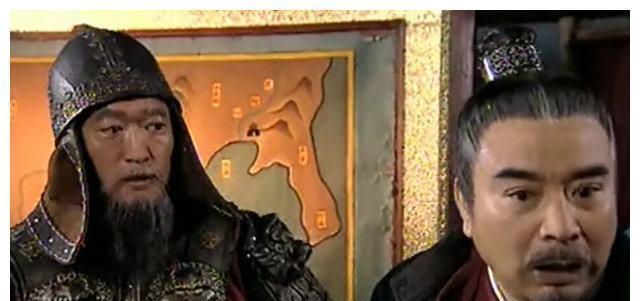Hello netizens, thank you very much for opening the article of the editor, I will, as always, share some knowledge and views with you openly, if the next content can produce some small happiness for you, the author will be honored!
Chinese like to engage in the "four big", such as the four beautiful women, the four beautiful men, the four famous books and so on. So, do you know who the "four traitors" are? The three most famous ones must be familiar to you, that is, Zhao Gao of Qin, Qin Juniper of Song, and Yan Song of Ming. However, the fourth excellency may not know - Tang Zhi Zhang Shigui.
Shen Ma, have you ever heard of Zhang Shigui? But you must have heard of Xue Rengui, and Zhang Shigui was Xue Rengui's superior.

Xue Rengui was oppressed when he debuted, and for a long time he could only be a small head fire army, and all this was caused by his leader Zhang Shigui. Zhang was jealous of his ability, suppressed and framed Xue Rengui at every turn, and pretended to take his military merits. After the matter was revealed, Zhang Shigui wanted to get rid of Xue Rengui, but he failed to succeed and plotted rebellion, and finally the army was defeated and ambushed.
What is said in the above three paragraphs is not real history, but only folk commentaries and interpretations. One of the routines of folk literature, in order to set off the aura of the protagonist, must create a heinous negative character. To set off Xue Rengui, someone must be unlucky, and Zhang Shigui is unfortunate to lie down with a gun. In fact, Zhang Shigui died unjustly, and he was a general who was seriously smeared by Yanyi. He was a founding hero of the Tang Dynasty, with both merit and private morality, and not only did he not suppress and frame Xue Rengui, but on the contrary, he had the grace to promote Xue Rengui.
In January 2016, the author visited Zhang Shigui's tomb on the spot and saw the excavated burial items and epitaphs. Below, let's talk about the real Zhang Shigui.
Tomb of Zhang Shigui
Zhang Shigui (586~657) was a strong martial artist, and Shi Zai was "good at riding and shooting, with excellent arm strength", "bending bows for 150 pounds, shooting left and right without empty hair". In the last year of the Sui Dynasty, he gathered a crowd to revolt, and later submitted to Li Yuan, and made many military achievements in the military career of completing the unification of the Tang Dynasty and border expansion, successively serving as the Right Guanglu Doctor, the Right Tun Wei Grand General, and the Left Leading General, and Tang Xianqing died of illness in the early years of Tang Xianqing (657 AD) at the age of 72.
How did Zhang Shigui and Xue Rengui deal with each other?
Portrait of Zhang Shigui
In the eighteenth year of Zhenguan (644 AD), Zhang Shigui participated in the conquest of Goryeo, which is also known as Xue Rengui's conquest of the east in the commentary. At that time, Zhang Shigui was already in the year of Hua Jia, and was appointed as the commander of the Liaodong Province March, with full responsibility for the battle. The young Xue Rengui enlisted in the army, joined Zhang Shigui's command, and was appreciated and promoted by Zhang, from an ordinary big head soldier to a low-level officer.
In June of the following year, Li Shimin led an army to besiege the city of Anshi, which belonged to Goryeo, and could not be attacked for a long time. Goryeo sent 150,000 reinforcements, and Zhang Shigui led an army to intercept it. During the battle, Xue Rengui saw Li Shimin watching the battle from a high place, and in order to earn performance in front of the supreme chief, he deliberately wore a conspicuous white robe and rushed to kill in the enemy's position, which was invincible. Sure enough, his performance was seen by Li Shimin, so he asked Zhang Shigui who this person was, and Zhang Shigui told the truth. Li Shimin was overjoyed, and gave Xue Rengui the title of guerrilla general, and gave him two horses and forty silk horses. In other words, Zhang Shigui did not suppress Xue Rengui at all and pretended to take credit for it.
Statue of Xue Rengui
Shi Zai, Li Shimin said to Xue Rengui: "All the generals are old, and those who think new and brave will be able to do so." Nothing like a secretary. He didn't like Liaodong, he was happy to be Qing'er. Zhang Shigui is already a 60-year-old man, and when he heard Li Shimin say this, if he was really a jealous and jealous villain, he must have ten thousand grass and mud horses in his heart. But in fact, Zhang Shigui did not frame Xue Rengui at that time and later.
"Scholars serve the country with nothing else, only a pen in their hands to make a knife", when the ancient literati had no way to serve the country, in order to eat mixed food, they often transferred flowers and trees from the history of the former dynasty, smeared historical figures, and set off the heroes in their hearts. Li Shimin liked the rejuvenation of military cadres and hated the elderly Zhang Shigui, while later generations of literati took advantage of the theme to portray Zhang Shigui as a traitor, and tried every means to suppress the young Xue Rengui...
Until now, in the TV series based on the Sui and Tang Dynasties, Zhang Shigui is still a big villain, and such a black cauldron will probably be carried on forever. To a certain extent, folk literature and the leisurely mouth of ordinary people are much more powerful than official revision history books.